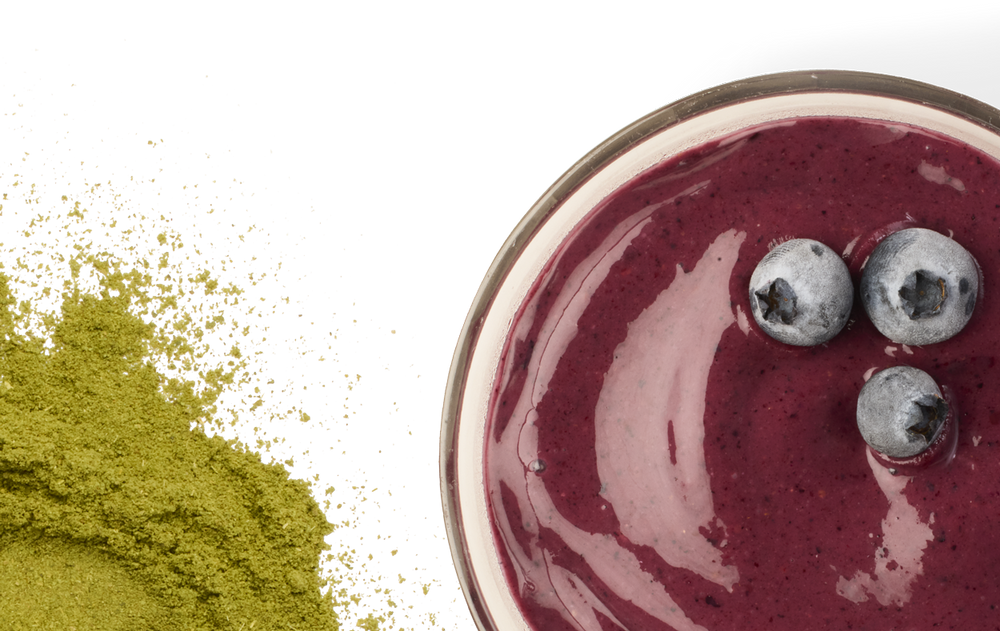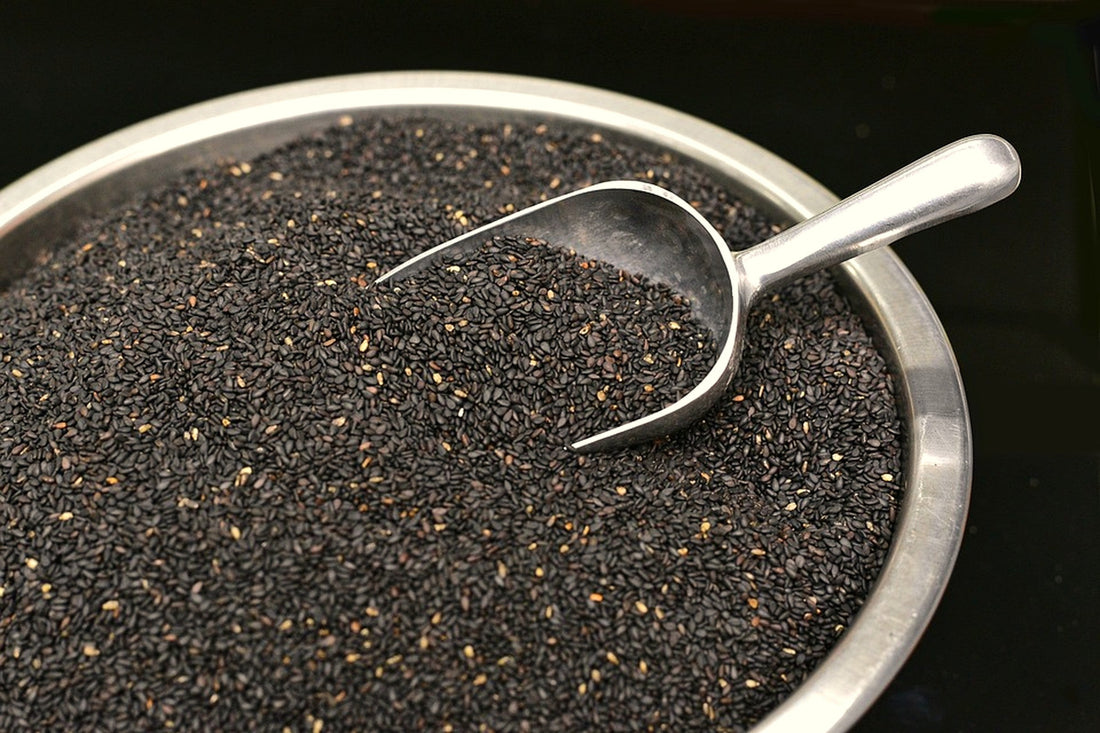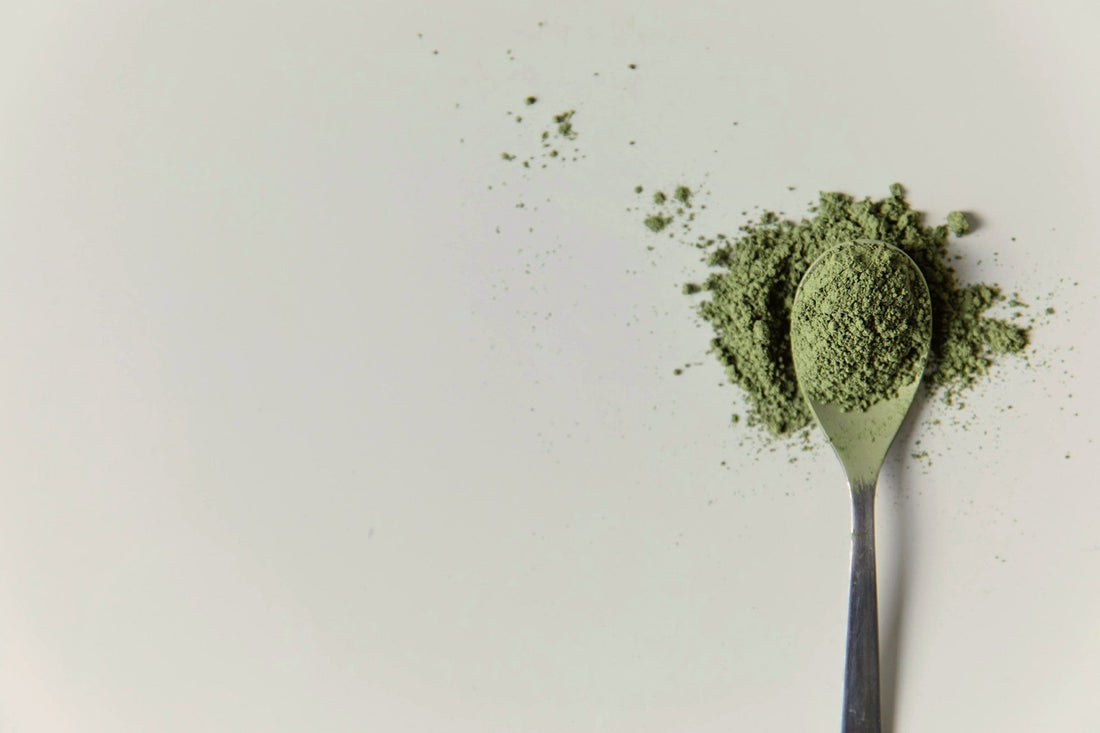
Healthy Superfoods and Drinks that Help Reduce Bloating
Bloating is a digestive condition that can be incredibly bothersome if not treated correctly.
In general, bloating is a fairly common issue — one 2023 study found that nearly 18% of the worldwide population has experienced swelling. The condition occurs due to excess gas production or disturbances in the digestive system, causing feelings of pain and tension.
While bloating is not always a cause for concern, it can be uncomfortable and frustrating to deal with. Additionally, some people may suffer from chronic bloating due to underlying health conditions, which makes it all the more important to know the signs of swelling and how to address them.
In this article, we discuss what bloating is, what its symptoms are like, and how you can improve your experience with foods that reduce bloating, and some effective anti-bloating drinks. With the right mix of superfoods and hydrating beverages, a well-balanced diet can significantly prevent this condition.
Read on to discover everything you need to know about to reduce bloating and improve your gut health!
What is Bloating & What are the Symptoms?
Bloating is a term that describes the swelling of your abdomen and gastrointestinal tract with air or gas.
This is most commonly caused by foods that trigger inflammation or the side effects of a chronic condition, such as inflammatory bowel syndrome (IBS) and other similar diseases. Generally, you should seek medical attention for bloating if it does not clear up within a day, or if you are experiencing severe pain in your abdomen and surrounding bodily areas.
According to Canadian Medical, the following steps can be taken to help reduce bloating symptoms:
- Drink plenty of fluids, ideally 2 to 2.5 liters of still water or herbal teal
- Make sure you are eating adequate dietary fiber — the daily recommended intake of fiber falls between 25 to 38 grams per day
- Get adequate rest to give your body time to digest properly
- Engage in mild exercise, such as walking
- Eat potassium from rich sources, such as bananas
As for preventing bloating, in most cases, making healthy dietary changes can produce impactful results when it comes to gut health and anti-bloating.
The Best Superfoods to Help Reduce Bloating
Superfoods are nutrient-dense foods that offer a variety of health benefits and can reduce the impacts of certain health conditions, like bloating. The key is to look for foods that aid in digestion, provide hydration, boost your fiber intake, and reduce inflammation.
Here are eight of the best superfoods that help stop bloating:
- Avocados: Avocados are not only delicious but also rich in potassium, which helps to regulate the balance of fluids in your body. This can help to prevent bloating caused primarily by water retention that may occur due to over-consumption of highly-processed goods and added sugars.
- Berries: Berries — such as blueberries, strawberries, and raspberries — contain high concentrations of antioxidants and fiber. Antioxidants found in these berries can help to promote anti-inflammatory effects in the body, while fiber supports healthy digestive processes. You can also add dried berries to your anti-bloat diet, as they are available throughout the whole year and are as effective as fresh fruits.
- Ginger: Ginger has a long history throughout the world as a natural remedy for digestive problems and is one of the best foods that help with bloating. Not only can organic ginger can help soothe the gastrointestinal tract when disrupted but it can also reduce inflammation and ease the build-up of gas in the tract and abdomen.
- Cucumber: Cucumbers are a refreshing and crunchy snack that can significantly help with maintaining your hydration levels. Since cucumbers have a high water content, these veggies act as a natural diuretic, flushing out excess water and stopping bloating.
- Turmeric: When it comes to spices for digestive help, none are quite as powerful as turmeric-a great debloating food. Natural turmeric contains curcumin, which is known for its anti-inflammatory properties and is very commonly used to help ease stomach conditions and promote better overall digestive function.
- Quinoa: If your digestive tract struggles to properly process gluten, finding gluten-free grain alternatives is essential Quinoa is a gluten-free grain rich in fiber and protein, which help to support healthy digestion and reduce the occurrence of inflammation and prevent bloating in the stomach.
- Yogurt: Most yogurts (and especially Greek yogurt) are rich in probiotics that contain beneficial bacteria for improving gut health, aiding digestion, and decreasing bloating. Greek yogurt is also high in protein, which can further support improved digestion and maintain satiety.
- Chia Seeds: Chia seeds are widely used in diet to reduce bloating. These seeds are an excellent source of fiber, which can help regulate bowel movements and prevent constipation. Constipation can often play a key role in healthy digestion, making it vital to regularly eat foods that keep your bowel movements regular.
Hydrating Drinks for Bloating Relief
Sometimes, when dealing with the symptoms of bloating, you may not feel like eating anything.
However, getting adequate fluids is crucial for staying hydrated. Proper hydration plays a major role in both the occurrence and longevity of bloating, making it highly important to drink a high level of fluids, when you are experiencing this digestive condition.

Here are four great beverages that can help relieve bloating:
- Green Tea: Green tea is one of the best debloating drinks, whichis packed with antioxidants and catechins that can help reduce inflammation and promote better digestion. Additionally, green tea is a natural source of caffeine, which helps to stimulate the bowels and keep your digestive system regular.
- Peppermint Tea: Peppermint tea is an effective drink to help with bloating. It has carminative properties that aid in preventing and relieving intestinal gas, as well as mild intestinal spasms. As a result, peppermint tea is a very common natural remedy for a wide range of stomach issues and digestive problems.
- Cranberry Juice: Unsweetened cranberry juice is known for its diuretic properties, helping to flush out excess water and alleviate bloating. Plus, cranberry supplement products contain high concentrations of probiotics, further helping to promote healthy digestion.
- Water with Lemon or Cucumber: Adding lemon or cucumber to water not only enhances the taste but can also aid in reducing bloating due to their natural diuretic effect. This can also make your water tastier, encouraging you to drink more.
Final Thoughts: Additional Methods for Reducing & Preventing Bloating

Along with making gradual improvements to your dietary habits and focusing on eating superfoods that promote gut health, there are other means for reducing and preventing bloating as well.
These additional methods include:
- Eat and Chew Slowly: Indigestion and bloating can often be caused by eating too quickly, causing you to swallow excess air and leading to a build-up of air and gas. By focusing on eating and chewing more slowly, you can ensure your digestive tract has adequate time to process food during your meal and snack times.
- Take Probiotics: Probiotic supplements can be hugely beneficial for improving your overall digestive function, including a reduction in bloating and inflammation. Probiotics include healthy bacteria that help to regulate your gut and promote better digestive health.
- Track Your Food: Keeping a food diary can help you identify specific foods that trigger bloating or discomfort. Common culprits include beans, cruciferous vegetables, carbonated beverages, and artificial sweeteners. Additionally, you should keep an eye on gluten-containing foods and, if you notice a correlation, contact your doctor about a gluten sensitivity assessment.
- Get Enough Sleep: Poor sleep can disrupt digestion and lead to bloating. Aim for seven to nine hours of quality sleep each night to support a healthy digestive system. Quality sleep should be continuous and uninterrupted whenever possible, allowing your body to fully rest and recuperate.
- Exercise Regularly: Physical activity can stimulate bowel movements and reduce bloating. Moreover, regular exercise is crucial for keeping your overall physical mobility and wellness in good working order. By incorporating regular exercise into your routine — such as walking, jogging, yoga, or cycling — you can also improve your digestive health and prevent bloating.
Related Articles
Black Sesame Seeds Benefits: Ancient Superfood for Modern Wellness
Moringa Powder Benefits: Ancient Superfood for Energy, Detox & Vitality

Unlock
up to 25% off
Exclusive deals, tricks, and updates on superfood tips!






0 comments